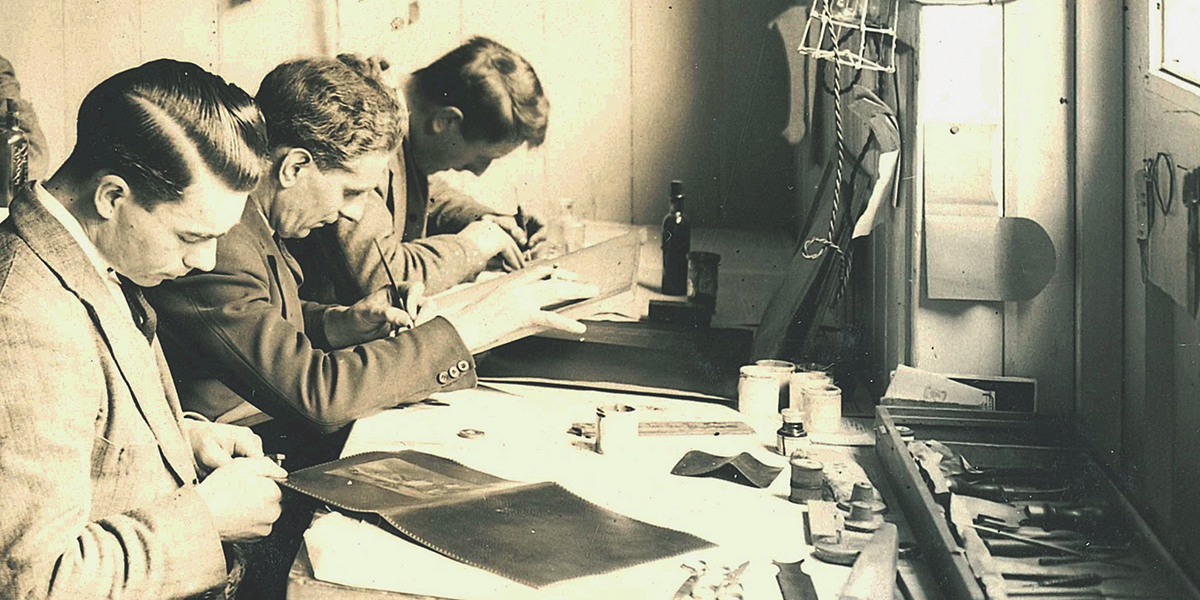Combat Stress 100

2019 marks the centenary of Combat Stress, Britain’s oldest military mental health charity, serving veterans suffering from PTSD and other mental health conditions since the end of the First World War. Age Exchange is currently working in partnership with Combat Stress to deliver Combat Stress 100, a unique national project marking its centenary. Along with a film documentary made with veterans supported by Combat Stress, currently touring the UK, historian Dr Rachel Duffett from the University of Essex has just completed the centenary publication “100 Years of Veterans’ Mental Health – A History of Combat Stress. The publication is available to buy through Age Exchange for £10. Please call us on 020 8318 9105 if you would like to purchase a copy or email hello@age-exchange.org.uk

100 Years of Military Mental Health – A History of Combat Stress by Dr Rachel Duffett
The centenary of the First World War has brought us many – and varied – anniversaries over the last five years, but that of the founding of Combat Stress in 1919, the only charity that was focused on the mental health of the conflict’s veterans, is surely amongst the most significant. While there’s evidence suggesting that soldiers in early wars had suffered what we might recognise today as PTSD, it was the experiences of 1914-1918 that embedded the concept of psychological trauma in the medical, military and wider worlds. Alongside the men who returned home with missing limbs or damaged faces, there were those who bore the invisible wounds of war and their suffering brought the concept of ‘shellshock’ into the national consciousness. One hundred years on, Combat Stress continues to work for those whose mental state has been damaged by their service to the nation and while the knowledge and treatment may be different, the commitment to the veterans and their families remains unchanged.
The story of Combat Stress, or the Fellowship of Reconstruction & Welfare Bureau as it was first called, is one that encompasses a broad sweep of military engagement from world wars to controlling insurgencies and peacekeeping. Whatever the political nature of the events, however broad or narrow the geographical reach, one thing has remained the same: men, and more recently women, have had to confront the very worst damage that humans – and military technology – can inflict upon each other. The consequences of exposure to extremes of brutality and suffering are significant and its legacies are long for both individuals and those that love and care for them. The book, 100 Years of Veterans’ Mental Health, is an attempt to capture the way in which the charity has supported those in need of their aid over the century, whether through treatment programmes, respite care or practical assistance with employment and pension claims. It also aims to reflect some of the significant shifts in the psychiatric approach of the military to the issue, from the greater consideration given to recruitment policies to treatment on the battlefield. Throughout, the book recognises the sacrifices made by the veterans and tries to give a sense of the extent of the price paid by those on whom we rely to protect and serve our nation.
And to find out more about the film Combat Stress 100 now touring contact David Savill, Artistic Director of Age Exchange at david.savill@age-exchange.org.uk